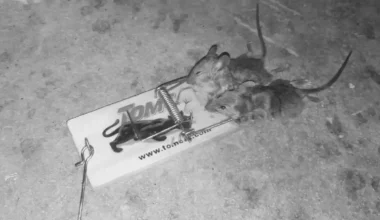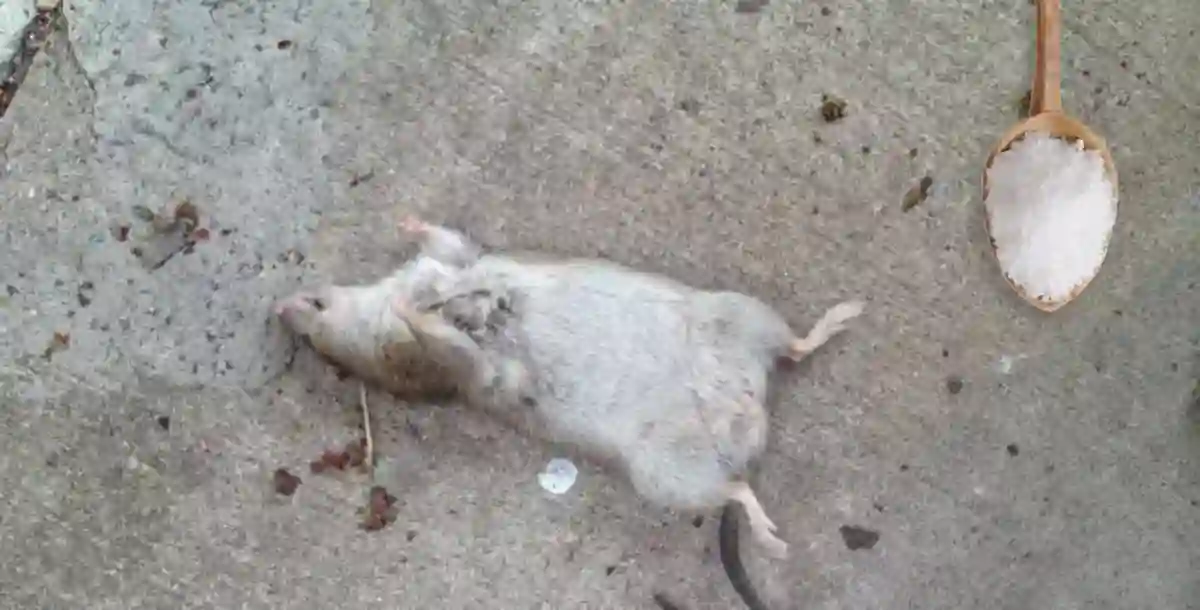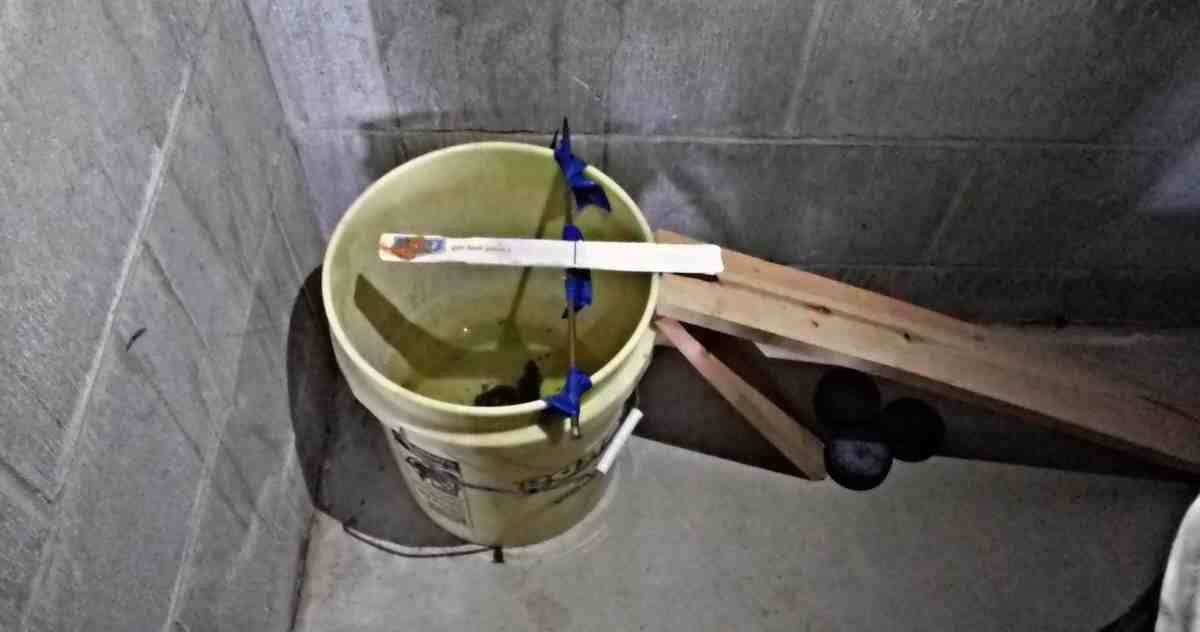Will mice come near me while I sleep? The thought of having mice in your home is on its own frightening, till you decide to invite pest exterminators to get your peace back. And this even makes some people say “mouse in bedroom can’t sleep”.
When you think about having mice climb on you when you are unconsciously sleeping, it makes you stay up at night. And especially if you are musophobic (an irrational and overwhelming fear of mice and rats). If this can help you sleep without fear, the possibility of having mice climb on you when you are asleep is slim. It is possible, however, but it depends on the condition. And it’s common for people to worry “Will mice crawl on you while you sleep”.
Will mice come near me while I sleep?

Mice can climb on beds if they want to do so because they are very good at climbing and they have strong and flexible paws. Here’s a publication detailing how mice even go upstairs!
Most surfaces are not too hard for a mouse to climb. It’s even easier than you think for a mouse to climb your bed, especially if you have blankets and sheets hanging across the bedside.
However, mice usually have difficulty climbing on metallic bed frames but if they want to do that, they will require much energy and effort. But then, mice can easily crawl up on a wooden bed frame. They are also able to jump up a foot from the ground level. This jumping mostly does not get them on top of your bed but it will get them to a particular point where they will be able to jump more till they get on your bed. Illinois Department of Public Health confirms that mice can jump up 13 inches from the floor onto a flat surface.
Do mice climb in your bed while you sleep?
Although mice are able to climb in your bed, they rarely do it. Mice are tiny creatures that other animals feed on. Therefore, they are always hiding from the sight of other large creatures (predators) as much as possible.
You might be bothered that mice do not see you as a threat to them while you are asleep. Some people even ask “will mice bite you in your sleep?” as a result.
Mice have different keen senses that alert them of potential predators. You can be identified by mice as a larger animal and potential predator through smell while you may not look dangerous when asleep.
On the contrary, mice do not usually get on beds except when there is something on the bed that they are in need of, which is most often food. You may leave crumbs on your bed if you eat in it which will attract a hungry mouse. And this mouse will conquer its fears of you and proceed to take the food crumbs while you are sleeping. Another reason for mice climbing on you while you are asleep is that you’ve laid on the path which they want to go to. And, using the bed is the shortest route to reach the spot.
Signs of mouse in your room
“There’s a mouse in my room and I’m scared.” Well, you want to be sure that you really have a mouse problem. So look for the following signs:
1. Mouse droppings
You may ask a question like “How do I know how many mice I have?” Mice droppings seem to be the most revealing sign of the presence of mice in a particular place or your room or even the number of mice.
The newly pooped ones are usually dark and moist, which when dried out over time turns gray. They are about ¼ inch long with cylindrical shapes loosely like that of rice grains.
If you see many mouse droppings, you likely have an infestation and need to get rid of it before it makes you sick. Moreover, you don’t want to touch mice poop with bare hands. Even vacuuming mice droppings is not advisable as you risk getting infected with hantavirus when you breathe in the dust.
2. Scratching noise
Mice are more active at the night than during the day. If you go to bed in the night, and you all of a sudden start hearing squeaking noises or scratches, you have a mouse in your room.
Mice sounds are usually heard in the walls or ceilings, as they are busy moving up and down through the small spaces between beams from one part of the house to the other.
3. Musky ammonia odors
There are no bathrooms assigned for mice as in the case of humans. Therefore, they urinate anywhere, even on your bed. So if you get to perceive a strong ammonia smell, it is likely that you have mice in your room.
4. Teeth marks and torn materials
Mice have their teeth grow constantly which makes them chew on things like wood, wiring, plastic, cables, and electrical in order to reduce the growth and pain from their teeth.
Also, you have mice in your room if you notice sudden cuts or holes in your clothing, bedding, fabrics, or other materials.
How to keep mice away from your bed
Do the following to keep mice away from you while you sleep:
1. Make sure your room is clean
Mice usually go to places where foods are left out and where there are food crumbs. They don’t have a choice of the kind of food they want as they eat anything they see.
Therefore, to keep them away from your room, do not eat in bed. Also, anything food should be left in the kitchen.
Also, mice are attracted to dirty clothes in the corners of your bedroom left for too long, which provides them with a warm, dark, and comfortable spot for nesting. They are also likely to pile up that area of your room with droppings.
To prevent mice from coming into your bedroom, climbing on your bed, coming near you, or even biting you, your room must be kept clean every time. Empty your garbage frequently as well. Clearing food sources and nesting spots can be enough to keep mice from coming into your bedroom.
2. Block access areas
Mice are capable of passing through holes that are small as a quarter-inch wide easily except their skull, which they have to squeeze through.
Having known, search your bedroom for any small, hidden holes at the wall base. Even if there are no traces of mice living in it, the probability of the mice using the hole to enter your room is high. When holes as such are found, seal them with materials like caulk and steel wool that can’t be easily chewed by mice.
For mice, the space you have under your bedroom door is another entry point to be. This spot can’t be definitely sealed with caulk or steel wool. Therefore, order a door sweeper online or at any local home improvement store to prevent rodents from entering your bedroom and coming near you while you sleep.
3. Sleep with a cat in your room
Naturally, cats are predators of rodents such as mice. Mice aren’t only good at hunting mice but they send off an odor that is usually perceived by the mice as predatory and then they stay away.
Sleeping with your cat in bed makes you feel secure and also ensures a worry-free night’s rest from mice climbing on your bed and coming near you or even biting you while you sleep.
Although some cats can easily detect the presence of mice by smelling and sighting, most of them are trained so they don’t chase mice for food. But even if they tend to catch one, mice produce rapidly. A female mouse gets pregnant approximately 5-10 times each year and can litter between 6 to 8 babies.
4. Use natural repellents
Although chemical-based repellents are good for killing mice, it poses a great health risk to humans and pets. This being the case, most tenants make use of natural repellents as alternatives to prevent mice from entering the bedroom. To prevent mice from coming into your bedroom, the following home solutions should be considered:
Peppermint oil
This mice repellant is very common as the mice’s nasal passage is usually irritated by the scent of it. Add a few drops of peppermint on a cotton ball and put them in places the mice go frequently.
Ammonia
Ammonia acts as the odor of predator’s urine and can. Pour ammonia into bottle caps and drop them in places the mice usually pass through or go to.
Mothballs
Mothballs are made up of naphthalene. They repel mice when it is used in high doses.
Other strong natural mice repellents include cloves, cayenne pepper, and camphor.
5. Consider humane traps
Though bait and trap methods are old-fashioned, they are still effective at preventing mice infestations. So it is important to select the right trap that will work better without causing injuries unnecessarily.
Although old-fashioned, baits and traps are still effective at reducing mice infestations. With so many options to choose from, it’s crucial to choose the right trap that will be effective without causing unnecessary injuries.
Also, if by chance you’ve been using a peanut butter trap, here are reasons why the trap is not catching mice.





